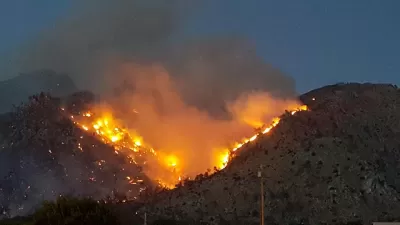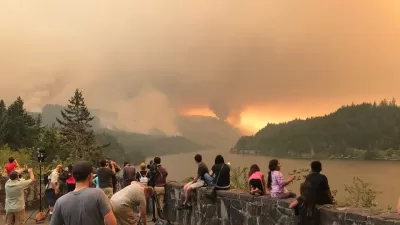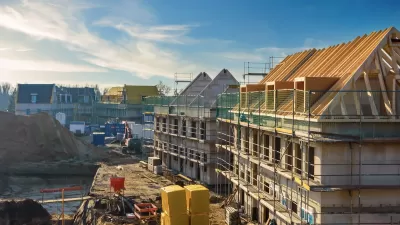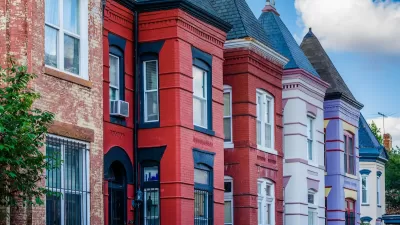After the worst wildfire season ever, changes to local land use and state insurance rules essentially ensure that the same thing will happen again.

Much like conversations about housing booms, flood insurance, and rebuilding that followed the most destructive flood in Houston history, in the months following the most destructive fire season in California history there were numerous conversations about where people should or should not be living, and whether they should or should not be encouraged to rebuild in what is often now referred to as the " Wildland-Urban Interface."
All of which may have lead more or less nowhere. At Bloomberg Businessweek, Christopher Flavelle speaks to Californians that intend to rebuild—or even to buy and rebuild on someone else's land—and reports that well-intentioned policies meant to help those affected by the fires may ultimately mean policymakers "make the same decisions that put homeowners at risk in the first place."
"Driven by the demands of displaced residents, a housing shortage, and a thriving economy, local officials are issuing permits to rebuild without updating building codes. They’re even exempting residents from zoning rules so they can build bigger homes."
There are also the insurance concessions, which nearly guarantee more insurance payouts in the future.
State officials have proposed shielding people in fire-prone areas from increased insurance premiums—potentially at the expense of homeowners elsewhere in California—in an effort to encourage them to remain in areas certain to burn again. The California Department of Forestry and Fire Protection (Cal Fire) spent a record $700 million on fire suppression from July to January, yet last year Governor Jerry Brown suspended the fee that people in fire-prone areas once paid to help offset those costs.
To illustrate the relationship between fire damage and development, Flavelle points out that the 1964 Hanley Fire flattened fewer than 100 homes, while the 2017 Tubbs Fire, which covered the same ground, destroyed 5,00 homes and killed 22 people.
Nonetheless, local officials almost always decide that rebuilding makes sense despite the risk that the houses will burn again. Anu Kramer, a researcher at the University of Wisconsin at Madison, looked at what happened to 3,000 buildings destroyed by wildfires in California from 1970 to 1999. She found that 94 percent were rebuilt. The result is that fires consistently—and predictably—destroy homes in the same place.
FULL STORY: Why Is California Rebuilding in Fire Country? Because You’re Paying for It

Planetizen Federal Action Tracker
A weekly monitor of how Trump’s orders and actions are impacting planners and planning in America.

San Francisco's School District Spent $105M To Build Affordable Housing for Teachers — And That's Just the Beginning
SFUSD joins a growing list of school districts using their land holdings to address housing affordability challenges faced by their own employees.

The Tiny, Adorable $7,000 Car Turning Japan Onto EVs
The single seat Mibot charges from a regular plug as quickly as an iPad, and is about half the price of an average EV.

Seattle's Plan for Adopting Driverless Cars
Equity, safety, accessibility and affordability are front of mind as the city prepares for robotaxis and other autonomous vehicles.

As Trump Phases Out FEMA, Is It Time to Flee the Floodplains?
With less federal funding available for disaster relief efforts, the need to relocate at-risk communities is more urgent than ever.

With Protected Lanes, 460% More People Commute by Bike
For those needing more ammo, more data proving what we already knew is here.
Urban Design for Planners 1: Software Tools
This six-course series explores essential urban design concepts using open source software and equips planners with the tools they need to participate fully in the urban design process.
Planning for Universal Design
Learn the tools for implementing Universal Design in planning regulations.
Smith Gee Studio
City of Charlotte
City of Camden Redevelopment Agency
City of Astoria
Transportation Research & Education Center (TREC) at Portland State University
US High Speed Rail Association
City of Camden Redevelopment Agency
Municipality of Princeton (NJ)





























